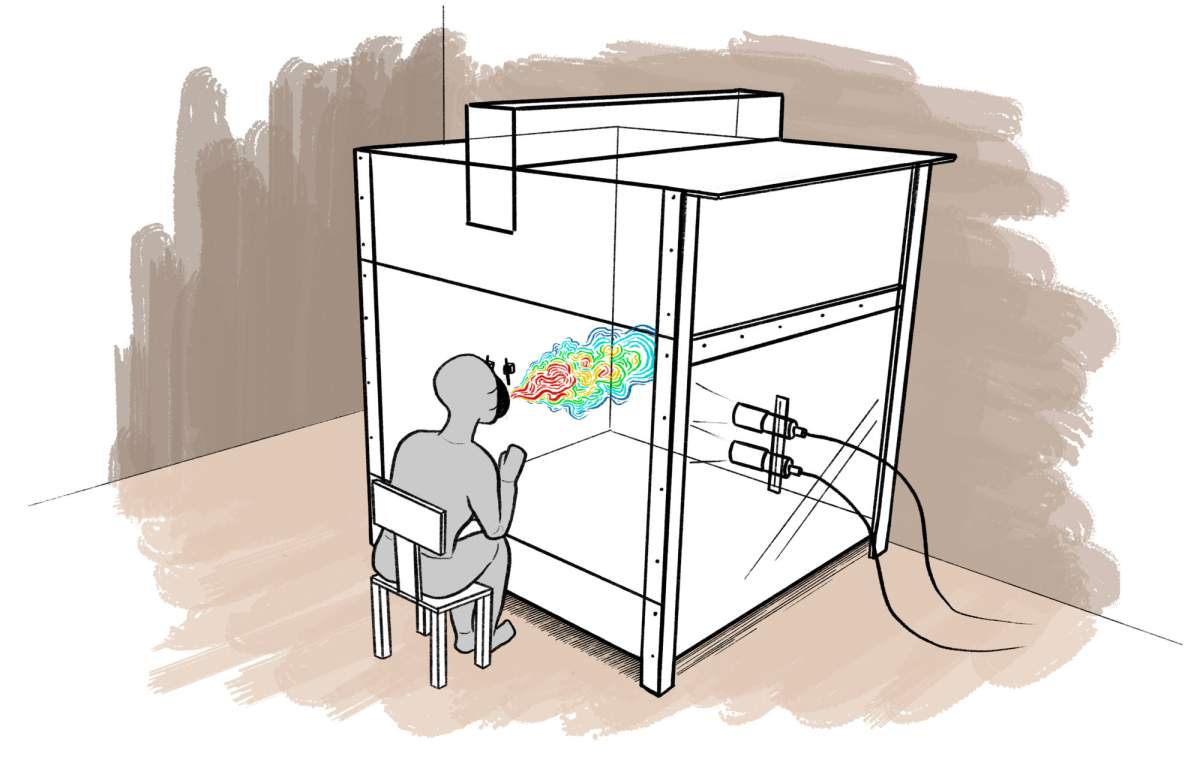As public health guidelines continue to recommend a two-metre space between people in an effort to slow the spread of the novel coronavirus, a recently published study led by Western University researchers shows that distance is not far enough if someone coughs.

Research for the study took place inside the Western University mechanical and materials engineering department’s “cough chamber” during the 2017-18 influenza season.
On April 14, the university announced the findings have now been published in the journal Indoor Air and will be the basis of new research specific to COVID-19, the disease caused by the novel coronavirus.
The cough chamber is a two-metre enclosed cube with an opening for study participants to cough into and is equipped with a camera and laser to determine the velocity of expelled droplets from a cough.
The initial study was undertaken to analyze “expulsive airflows,” or coughs, produced by people with seasonal influenza and is believed to mark “the furthest distance anyone has ever measured cough airflow.”
The findings show that droplets from a cough can reach a person standing six feet away in just three seconds.
“Even when you are 2.5 metres (eight feet) away, the airflow in the cough can still be moving at 200 millimetres a second,” explains the researcher behind the cough chamber, Eric Savory, who also collaborated with virologists at Sunnybrook Hospital in Toronto.

Get weekly health news
“That means the very fine droplets are going to remain suspended for a long time, even after four seconds.”
The findings will be used as the basis of further study specific to the COVID-19 pandemic. Savory will be collaborating with Eric Arts from Western’s Schulich School of Medicine and Dentistry and Franco Berruti from Western’s department of chemical and biochemical engineering.
The team will work out of Western’s ImPaKT containment laboratory, where Arts already has a team developing a COVID-19 vaccine, and will look at the pathways of COVID-19 droplets “through the air and analyze different material surfaces in order to verify its survivability under different temperature and humidity conditions.”
Questions about COVID-19? Here are some things you need to know:
Health officials caution against all international travel. Returning travellers are legally obligated to self-isolate for 14 days, beginning March 26, in case they develop symptoms and to prevent spreading the virus to others. Some provinces and territories have also implemented additional recommendations or enforcement measures to ensure those returning to the area self-isolate.
Symptoms can include fever, cough and difficulty breathing — very similar to a cold or flu. Some people can develop a more severe illness. People most at risk of this include older adults and people with severe chronic medical conditions like heart, lung or kidney disease. If you develop symptoms, contact public health authorities.
To prevent the virus from spreading, experts recommend frequent handwashing and coughing into your sleeve. They also recommend minimizing contact with others, staying home as much as possible and maintaining a distance of two metres from other people if you go out.
For full COVID-19 coverage from Global News, click here.









Comments
Want to discuss? Please read our Commenting Policy first.